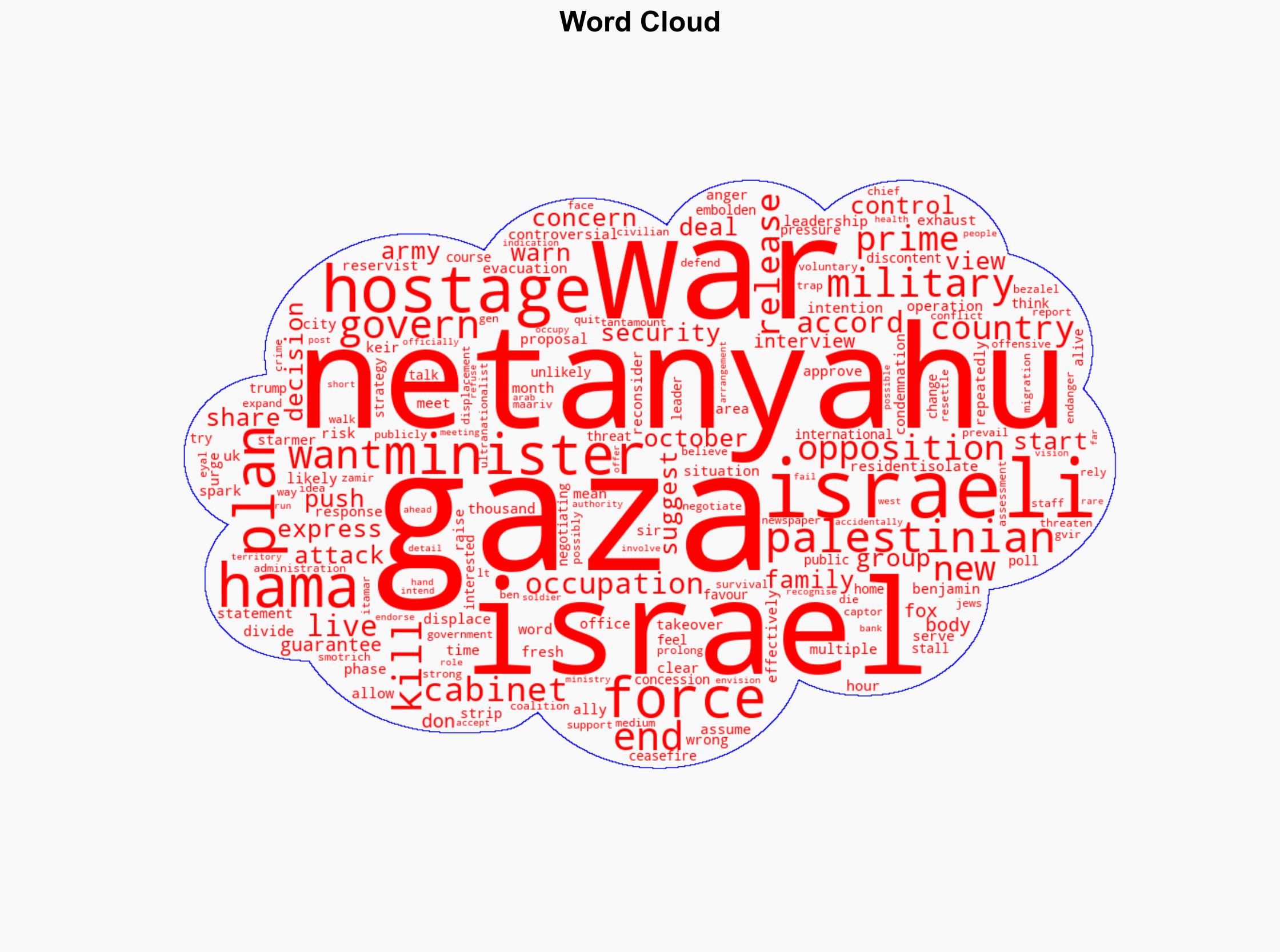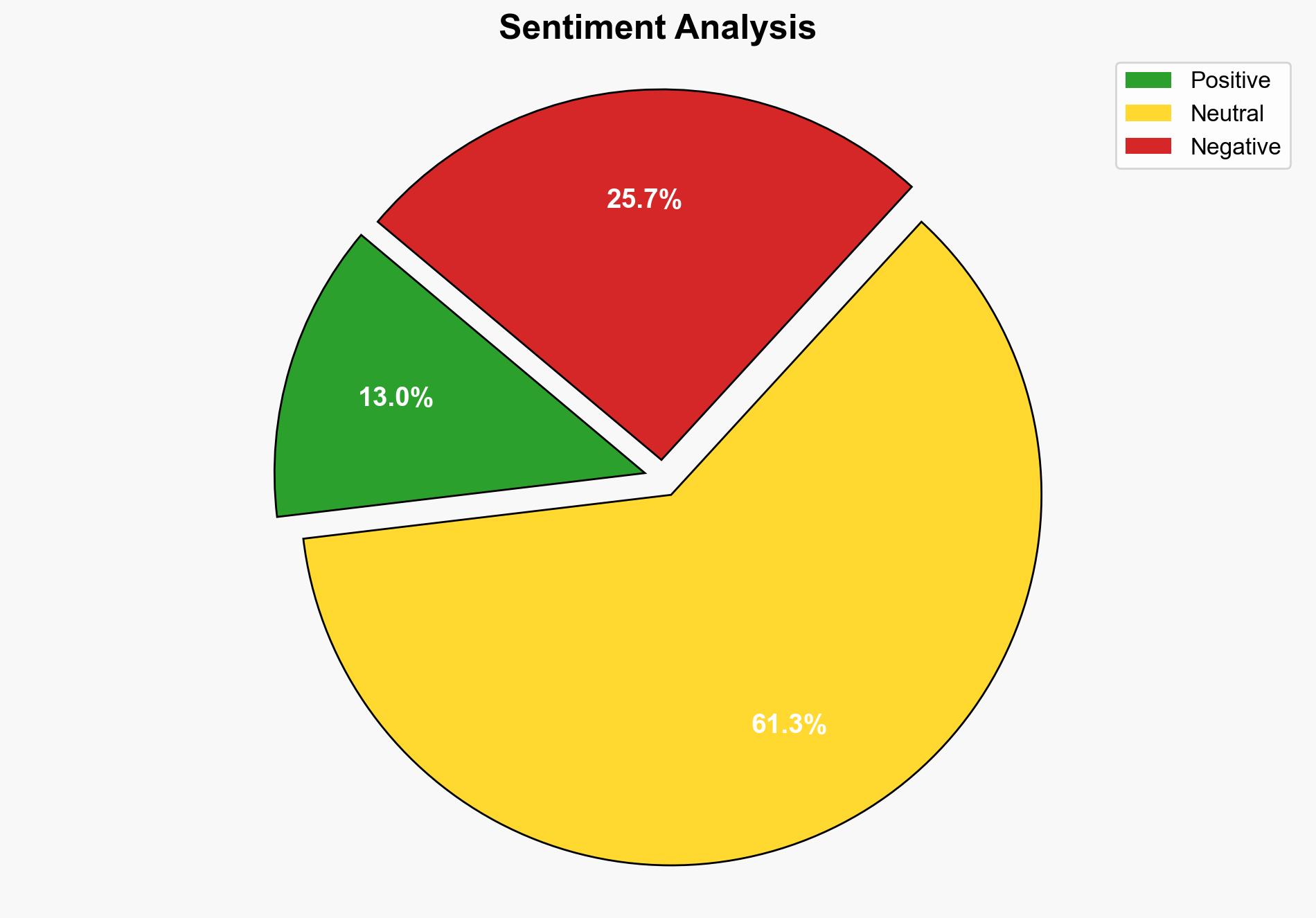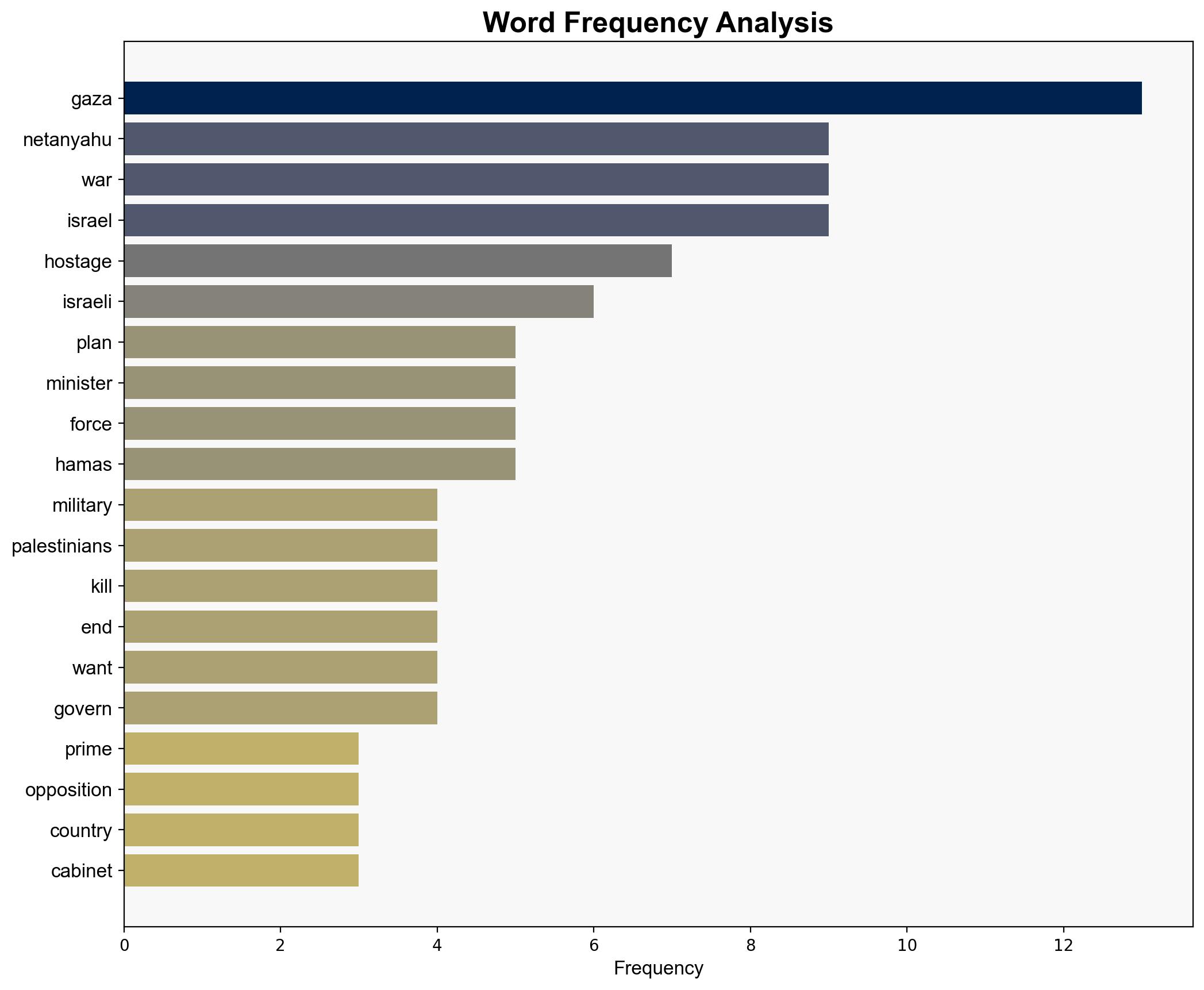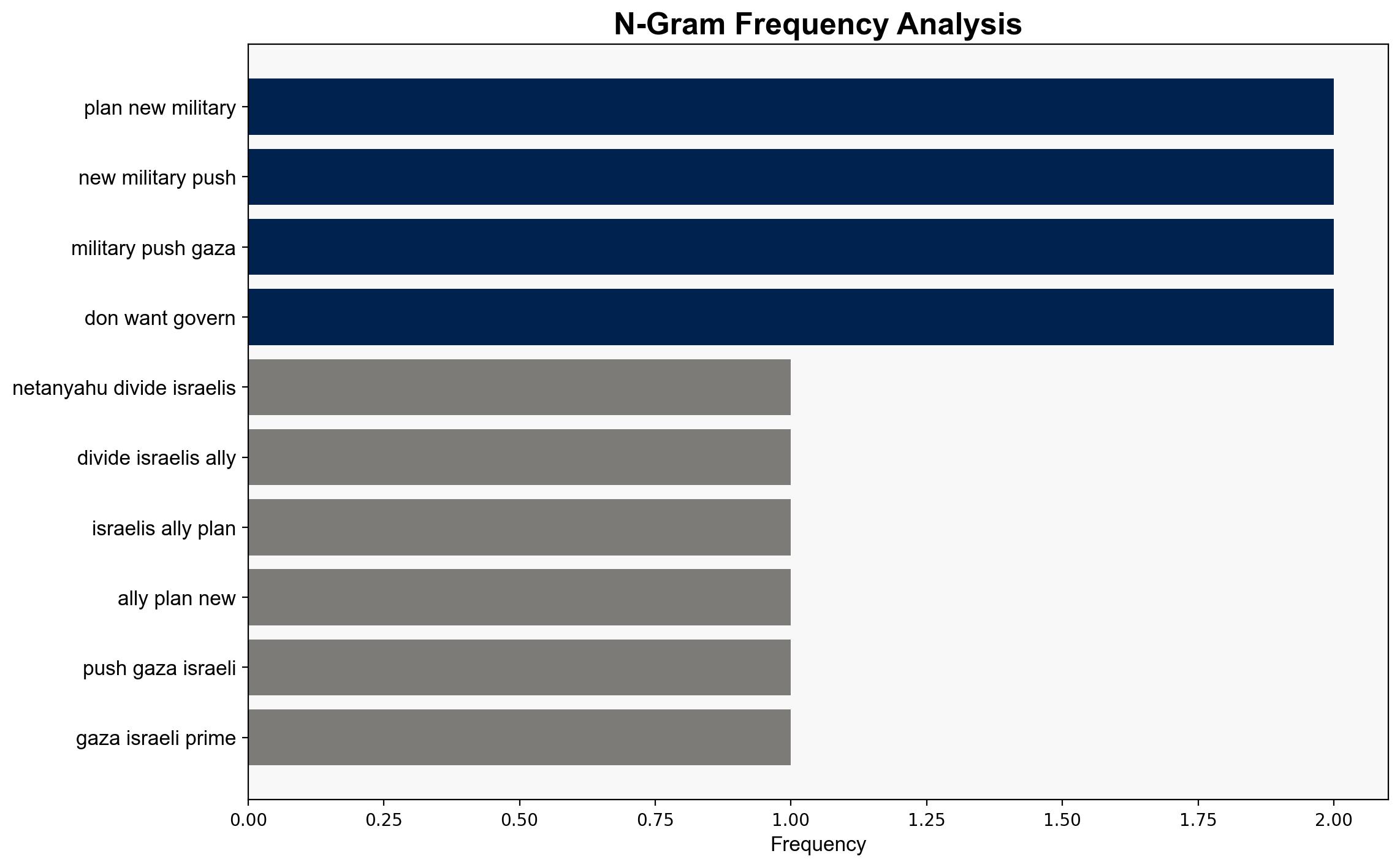Netanyahu divides Israelis and allies with plan to occupy Gaza – BBC News
Published on: 2025-08-07
Intelligence Report: Netanyahu divides Israelis and allies with plan to occupy Gaza – BBC News
1. BLUF (Bottom Line Up Front)
The strategic judgment suggests a moderate confidence level that the proposed occupation plan of Gaza by Netanyahu could lead to increased regional instability and international isolation for Israel. The hypothesis that Netanyahu’s plan is primarily driven by domestic political survival is better supported. It is recommended that diplomatic channels be leveraged to mediate a peaceful resolution and prevent further escalation.
2. Competing Hypotheses
1. **Hypothesis A**: Netanyahu’s plan to occupy Gaza is primarily a strategic military decision aimed at neutralizing Hamas and ensuring long-term security for Israel.
– **Supporting Evidence**: The plan is framed as a response to Hamas attacks and includes military control over Gaza.
– **Contradictory Evidence**: Opposition from Israeli military leadership and international allies suggests skepticism about the plan’s efficacy.
2. **Hypothesis B**: Netanyahu’s plan is driven by domestic political considerations, aiming to maintain his coalition’s support and political survival.
– **Supporting Evidence**: The plan faces significant domestic opposition, and Netanyahu’s coalition relies on ultranationalist ministers who support aggressive actions.
– **Contradictory Evidence**: The plan’s military aspects suggest a genuine security concern beyond political maneuvering.
3. Key Assumptions and Red Flags
– **Assumptions**: It is assumed that Netanyahu has the capability to execute the plan without significant internal or external disruption. It is also assumed that Hamas will not negotiate under current conditions.
– **Red Flags**: The lack of a clear post-occupation strategy for Gaza and the potential for increased civilian casualties are major concerns. The potential for miscalculation or unintended escalation is high.
– **Blind Spots**: The impact of international diplomatic pressure and potential shifts in public opinion within Israel are not fully accounted for.
4. Implications and Strategic Risks
– **Regional Instability**: An occupation could lead to broader regional conflict, drawing in neighboring countries and non-state actors.
– **International Isolation**: Continued occupation without a clear exit strategy may isolate Israel diplomatically, affecting economic and military support.
– **Escalation Scenarios**: Potential for retaliatory attacks by Hamas or other groups, leading to a cycle of violence.
– **Economic Impact**: Prolonged military engagement could strain Israel’s economy and affect regional trade.
5. Recommendations and Outlook
- Engage in diplomatic efforts to de-escalate tensions and explore ceasefire options with international mediators.
- Prepare for humanitarian assistance to mitigate civilian impact in Gaza.
- Scenario Projections:
- **Best Case**: Successful negotiation leads to a ceasefire and gradual de-escalation.
- **Worst Case**: Full-scale occupation leads to prolonged conflict and international backlash.
- **Most Likely**: Continued military engagement with intermittent international diplomatic interventions.
6. Key Individuals and Entities
– Benjamin Netanyahu
– Itamar Ben Gvir
– Bezalel Smotrich
– Eyal Zamir
– Hamas leadership
– Keir Starmer
7. Thematic Tags
national security threats, geopolitical strategy, regional stability, political survival





